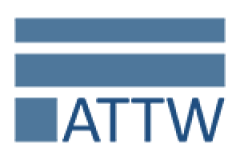As a member of ATTW, you will receive the Association’s quarterly journal, Technical Communication Quarterly. You can present at the annual ATTW conference once accepted. You also show your support for ATTW and its initiatives.
ATTW Membership
Membership in the organization provides you with a subscription to Technical Communication Quarterly and voting privileges in member elections to elect the Executive Committee. Membership is required for individuals attending or presenting at the annual conference.
Membership is annual from January to December; renewals and new memberships received on or after Nov. 1 will take effect in the new calendar year.
Membership Dues for 2025
Faculty with Print and Online access to TCQ – $84.00
Faculty with Online only access to TCQ – $70.00
Contingent faculty – $60.00
Retired faculty – $60.00
Students – $22.00 (with verification of student status)
Renew or join ATTW as a member today.
If you are already a member, log in with your email address and password, check your membership expiration date, and click “Pay Member Dues” to renew. If you are joining for the first time, you’ll be asked to create a new profile first.
To check if your membership is current:
ATTW members who would like to check the status of their membership may do so by logging in to our new membership system using their email address and password. Your membership type and expiration date is listed in the left sidebar. If your membership needs to be renewed, you can use the “Pay Member Dues” button.

If you don’t know your password or your profile was auto-created for you, use the “forgot password” function to reset your credentials and then update your membership profile.
For any other questions about the status of your membership, please email Lisa Dusenberry at communications@attw.org.
Mailing list
ATTW maintains an email discussion list open to both members and non-members.
